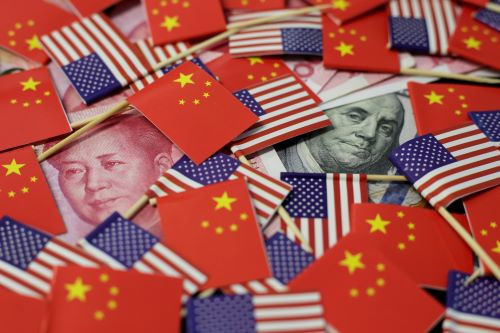Fresh China bond defaulted over the weekend and some corporate delinquencies have raised concern over state-owned enterprises operating in China. The report claimed that the contagion risk of the slowing Chinese economy caused the failure of bond repayments of some state-owned enterprises.
According to The Sun Daily, Hohhot Economic and Technological Development Zone Investment Development Group, a state-owned enterprise in China, revealed that they are still in the process of repaying their money amid the Chinese economy decline. The enterprise was given a deadline to comply by December 6, 2019, but failed to meet that date.
The failure of the enterprise to repay its bonds allegedly worried some debt-laden municipalities in China such as Fresh China. Those who have borrowed money in recent years were found skeptical about the default state-owned enterprises experienced. The report indicated that financial markets played a bigger role in the growing risk of investments in bonds.
The report claimed that the Chinese government has been trying to solve the issue by funding a gap of 7.6 trillion yuan in 2018 alone. The report also indicated that there may be a likely increase in Chinese tax cuts to boost spending within the Chinese economy. It was also mentioned that the US-China trade war plays a crucial role in investor confidence particularly those engaged in the bonds market.
The report also claimed that the Hohhot Economic and Technological Development Zone has already issued one-billion-yuan worth of bonds to some financial markets to offset the growing debts. It was revealed that in 2016, the investments repaid bank loans, replenished governmental capitals, and added to the finances of construction projects in select areas. The company, who is also engaged in real estate, water systems development, and infrastructure construction, continue to extend aid within Chinese bond markets.
According to an analyst with the Industrial Securities in China Huang Weping, Chinese local governments continue to survive the growing pressure in paying off implicit debts. Over the weekend, Weping claimed that investors in the Chinese bond market should be on high alert for changes within its financial markets especially those who are players in the financially weak provincial governments.
The bond repayment was one of a series of state-owned entities that have defaulted within the Chinese bond market. The other state-owned entities who experienced the same fate were Peking Founder and Tianjin's Tewoo Group. The default of the latter also caused concern over state-owned enterprises engaged in the health industry.
Last week, Bloomberg reported that there are bond markets who offered yields that seemed too good to be true. The report claimed that Chinese municipalities have been selling debt as a means to fund Chinese infrastructure projects. However, it was also revealed that these yields were found attractive provided that there are about $12 trillion of bonds with negative interest rates in China.





